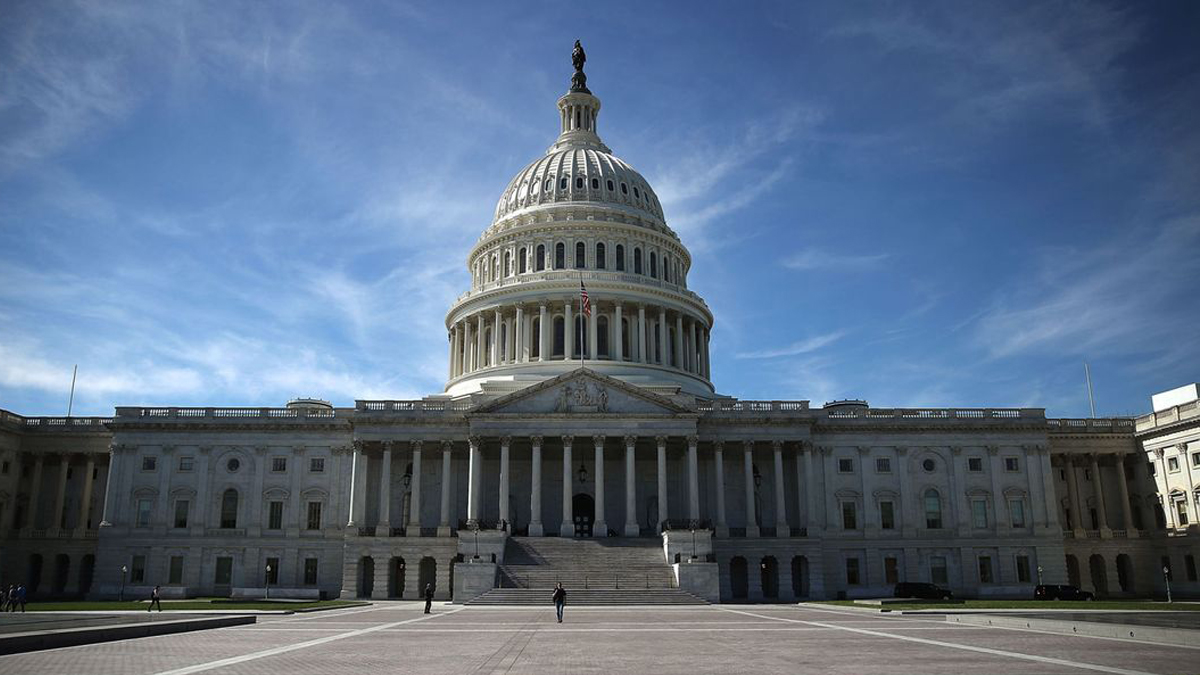
US House Passes Uyghur Policy Act

The U.S. House of Representatives passed legislation Thursday that would require the State Department to offer Uyghur language classes to diplomats, place Uyghur speakers in all consulates in China and include Uyghurs in speaking programs in Muslim-majority countries.
The latest version of the Uyghur Policy Act, which has been introduced in past sessions of Congress without success, passed the House 414-6, but still faces a long journey in the Senate to become law.
Rep. Young Kim, a Republican from California, and Rep. Ami Bera, a California Democrat, led the introduction of the bill in the House, but it was also co-sponsored by 104 other House members. Both Kim and Bera praised the strong support in Thursday’s House vote.
“The Uyghur Policy Act equips the U.S. with tools needed to support the basic human rights and distinct identities of Uyghurs and other ethnic minorities in the Xinjiang Uyghur Autonomous Region subject to [China’s] inhumane treatment,” said Kim, who is also the chair of the House Foreign Affairs Subcommittee on the Indo-Pacific.
The United States has labeled Chinese policies in the Xinjiang region a “genocide” and the U.N. human rights office in 2022 said that there was evidence of possible “crimes against humanity” being carried out.
Bera said he was pleased to see the legislation, which would also require the U.S. State Department to appoint a special coordinator for Uyghur issues, pass so decisively on a bipartisan basis.
“This bill takes crucial steps to bolster American efforts to safeguard the distinct ethnic, religious, cultural and linguistic identity of the Uyghur people and promote respect for human rights and religious freedom in the Xinjiang Uyghur Autonomous Region,” Bera said.
Overwhelming support
The only six House members to vote against the bill were all Republicans: Michael Cloud of Texas, Warren Davidson of Ohio, Marjorie Taylor Greene of Georgia, Thomas Masie of Kentucky, Ralph Norman of South Carolina and Chip Roy of Texas.
Massie and Greene have a history of opposing similar bills.
The pair were the only two to vote against a House bill introduced last year to impose sanctions on China due to forced organ harvesting of Uyghurs and practitioners of Falun Gong, citing presidential overreach and their fears that legitimate organ sellers could be punished. That legislation ultimately passed 414-2.
The Uyghur Policy Act now heads to the Senate, where it has been championed by Sen. Marco Rubio, a Republican from Florida, and co-sponsored by Sen. Catherine Cortez Masto, a Democrat from Nevada, and Sen. Roger Marshall, a Republican from Kansas.
“The CCP is carrying out a disgusting campaign of genocide and human rights abuses committed against Uyghurs and other predominantly Muslim ethnic groups,” Rubio said in a statement after re-introducing the bill in the Senate in April last year.
“The United States cannot be silent in the face of such horrific abuse,” he said. “I urge my colleagues to quickly pass this bill.”
Still, the bill may still have a while to go before becoming law.
It has yet to be marked up by the Senate Foreign Relations Committee, which would allow it to come before a vote of the chamber. The Senate is also currently in recess until Feb. 26, and is expected to focus on efforts for a deal to fund the federal government when it resumes.
Welcome step
Uyghur activists in the United States nevertheless welcomed the passage of the legislation as a further step toward its passage.
“Now is the time to roll up our sleeves and focus on getting the bill through the Senate so it can reach President [Joe] Biden and be signed into law as soon as possible,” said Uyghur American Association President Elfidar Iltebir in a statement.
Rushan Abbas, the director of the Campaign for Uyghurs, said her organization had worked closely with lawmakers in the House to push the bill towards passage, and was already doing the same in the Senate. She praised the strong bipartisan support.
“It is a clear indication that the U.S. Congress is earnestly addressing the plight of the Uyghur community and is committed to combating the ongoing genocide,” Abbas told Radio Free Asia.
“We extend our sincere appreciation to the legislators who have demonstrated their unwavering commitment to justice and human rights by standing in solidarity with the Uyghur people.”
Louisa Greve, director of global advocacy for the Uyghur Human Rights Project, said it was telling that originally it was expected that 10 House members would vote against the bill because of a view that “foreign policy is not important,” but four changed their mind.
“Even those who have a position, in general, to aim to avoid foreign policy completely as a member of Congress, some changed their votes. They did not want to be on the record for this bill,” she said.












Comments